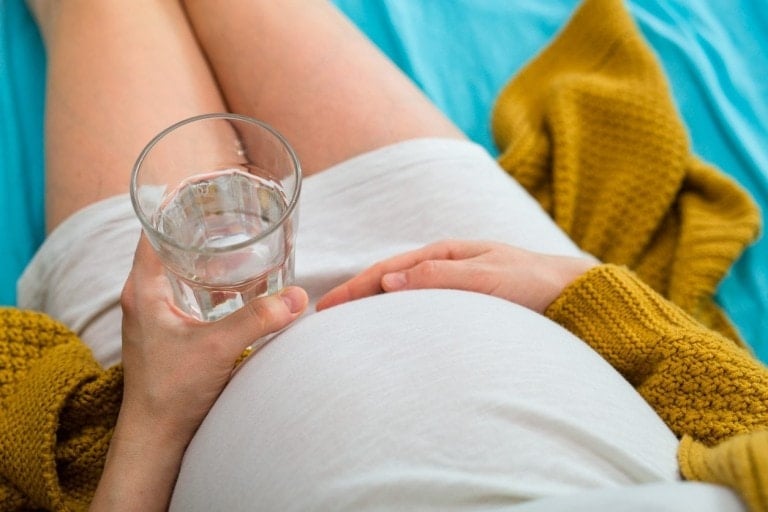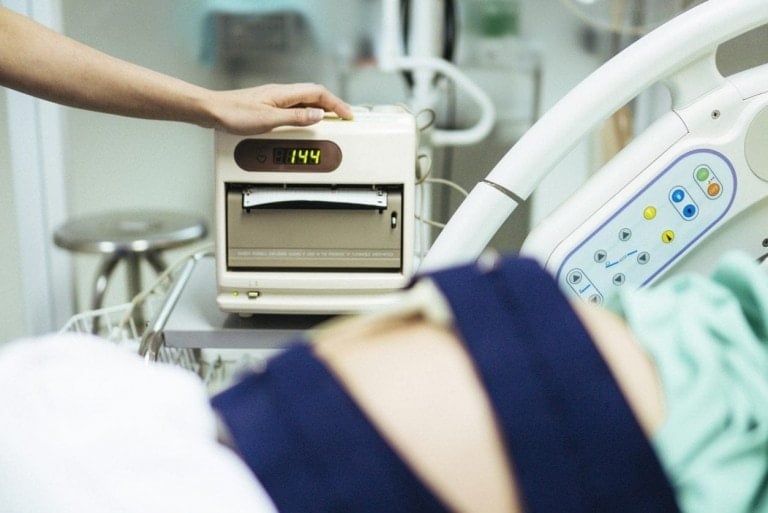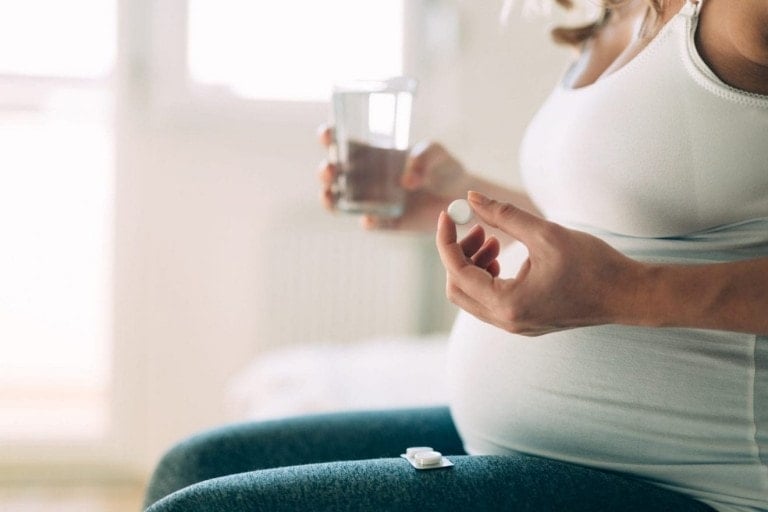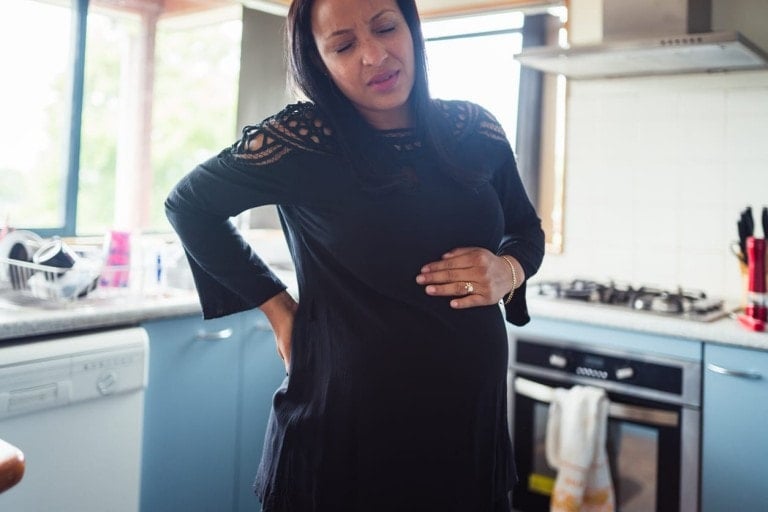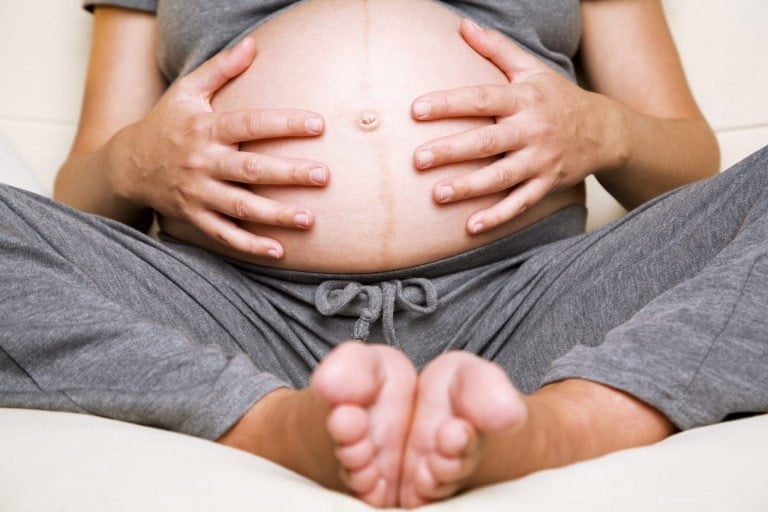If you are pregnant, you might wonder why getting sufficient iron during pregnancy is so essential. Low iron is already a cause for concern among many women, pregnant or not. Add the increased demand in supporting the growth and development of a fetus and the expanding blood volume, and the risk of low iron in pregnancy increases.
Curious how to support your increase in need for iron during pregnancy? In this article, we explore the importance of iron in pregnancy, the benefits of adequate iron intake for both mom and baby, and how you can get iron through your food. We will also discuss whether an iron supplement may be necessary during pregnancy.
Before we dive into the importance of iron in pregnancy, let’s first discuss what iron is!
What Is Iron?
Iron is a mineral that is essential for many bodily functions, including the production of hemoglobin, a protein in red blood cells that carries oxygen from the lungs to the rest of the body. Iron also helps support the immune system, energy metabolism, and cognitive development.1
This mineral is in various foods, including red meat, poultry, fish, beans, lentils, tofu, spinach, and fortified cereals. However, some people, particularly pregnant women, and women of childbearing age, may be at risk of low iron, and obtaining it through food alone may not be enough. Iron deficiency can lead to anemia, a condition characterized by low hemoglobin levels in the blood. Symptoms of anemia include fatigue, weakness, pale skin, and shortness of breath, and if left untreated, low iron in pregnancy can cause more severe outcomes.2,3
Importance of Iron in Pregnancy
Iron plays a critical role in overall fetal growth and development and the mom’s health. During pregnancy, the body’s demand for iron increases to support the growth of the fetus, the expansion of maternal blood volume, and the formation of the placenta. Low iron in pregnancy can lead to various complications, including preterm birth, low birth weight, and developmental delays in the child.4,5,6
How Much Iron Do You Need in Pregnancy?
To account for the increased demand and ensure adequate intake of iron in pregnancy, pregnant women are advised to consume more iron than non-pregnant women. The current recommendation for iron intake during pregnancy is 27 milligrams per day (compared to 18 milligrams per day for non-pregnant women ages 19 to 50). However, the recommended daily intake of iron in pregnancy varies depending on age and other factors, such as already having low iron. Discuss with your healthcare provider whether you need additional iron supplementation.1
Symptoms of Low Iron in Pregnancy
Low iron in pregnancy can lead to fatigue, weakness, and shortness of breath, which can interfere with a woman’s ability to carry out daily activities and may increase the risk of complications during delivery.7
Iron deficiency during pregnancy can lead to a range of symptoms, including:1,7,8
- Fatigue and weakness: Iron deficiency can cause low levels of hemoglobin in the blood, which can reduce the amount of oxygen that reaches the body’s tissues and organs, leading to fatigue and weakness.
- Pale skin: Reduced hemoglobin levels can cause the skin to appear pale or white.
- Shortness of breath: Iron deficiency can make it difficult for the body to transport oxygen to the lungs, leading to shortness of breath.
- Headaches and dizziness: Due to reduced oxygen levels in the brain, low iron can lead to headaches and dizziness.
- Cold hands and feet: Iron deficiency can reduce blood flow to the extremities, leading to cold hands and feet.
- Restless legs syndrome: Iron deficiency has been linked to restless legs syndrome, a condition characterized by an irresistible urge to move the legs.
Low iron in pregnancy can lead to more severe complications, such as preterm birth and low birth weight if left untreated. Speak to your healthcare provider if you are experiencing any of the above symptoms to determine whether you have an iron deficiency and need supplementation.9,10
Ways To Add Iron to Your Diet
Many pregnant women can meet their increased iron needs through food alone. Most people typically think of red meat when we talk about iron, and although red meat, poultry, and seafood are some of the richest sources, you can find iron in various foods.
Top food sources of iron include:1
- Red meat: Beef, pork, and lamb
- Poultry: Chicken and turkey
- Beans and lentils: Kidney beans, chickpeas, and lentils
- Tofu and tempeh
- Nuts and seeds: Almonds, cashews, and pumpkin seeds
- Leafy green vegetables: Spinach, kale, and Swiss chard are all rich in iron, as well as other nutrients like vitamin C and folate, which can help the body absorb iron.
- Fortified cereals: Many breakfast cereals are fortified with iron, making them a convenient way to boost iron intake.
It is essential to note that there are two forms of iron: heme and non-heme. Heme iron is found in animal products, whereas non-heme iron is found in plant-based sources. Typically, the body absorbs heme iron more efficiently from animal-based sources compared to non-heme iron from plant-based sources. However, pregnant women have an increased ability to absorb non-heme iron. To enhance iron absorption from plant-based sources, consume them with vitamin C-rich foods, such as citrus fruits, tomatoes, or bell peppers.11
Some foods reduce iron absorption, including coffee, tea, and calcium-rich foods such as milk and yogurt. Consume these beverages between meals so they do not affect your iron absorption.12
Should You Use Iron Supplements?
Many prenatal vitamins contain some amount of iron supplementation ranging from 5 mg to 18 mg but not all. Your healthcare provider may recommend additional iron supplements during pregnancy if you are not getting enough iron from diet alone or are at risk for iron deficiency anemia. Women with a history of anemia, heavy menstrual periods, or multiple pregnancies may be at higher risk of iron deficiency during pregnancy and may require iron supplements.1,12
Excessive iron intake can be harmful, so you must discuss with your healthcare provider whether an additional iron supplement is necessary. Too much iron can cause constipation during pregnancy as well as nausea, vomiting, and other digestive problems. In extreme cases, it can lead to iron toxicity, which can cause liver damage and other serious health problems.1
If you have concerns about your iron intake or are experiencing symptoms of iron deficiency during pregnancy, speak to your healthcare provider. They can provide advice on the best way to address the issue. In many cases, a balanced diet that includes iron-rich foods may be sufficient to meet the increased iron needs during pregnancy.
Iron is a vital nutrient during pregnancy, and its deficiency can cause serious health problems for both mom and baby. The symptoms of low iron in pregnancy are relatively common, including fatigue and shortness of breath, but they can have severe consequences if left untreated. Therefore, it is crucial to seek medical advice if you are experiencing any symptoms of iron deficiency during pregnancy. By monitoring iron levels and consuming a well-balanced diet rich in iron and other essential nutrients, pregnant women can help to ensure a healthy pregnancy and the best possible outcomes for their babies.























